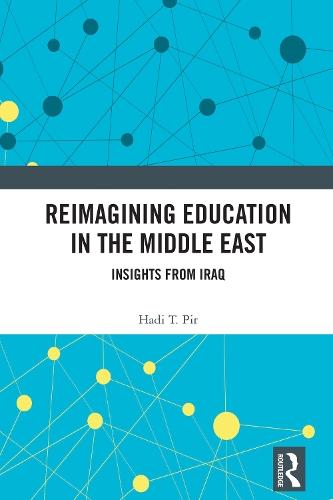Overview
This book critically examines significant educational challenges in the broader Middle East, using insights from Iraq to explore historical, political, social, racial, religious, linguistic, and sectarian influences on education. It introduces new theoretical perspectives to explain why ineffective educational policies have persisted for the past century and proposes alternative approaches for research and policymaking in the region. Utilizing grounded theory methodology, the book includes interviews with 20 prominent Iraqi educational policymakers to reveal a shared worldview—termed the Traditional Paradigm—that continues to influence education and policy. It critiques dominant Western paradigms of critical theory and postmodernism for their inability to capture the complexities of the Middle East. Additionally, it introduces the Established Reality Theory, which draws on cognitive psychology and sociology to explain why ineffective policies persist despite shifts in regime. The book provides new insights, policy recommendations, and avenues for research to assist scholars and policymakers in tackling significant educational challenges. The book is relevant to scholars, researchers, and students in education, Middle Eastern studies, sociology, and political science. It is also valuable for policymakers, educators, and institutions seeking a deeper understanding of educational structures and reform in the Middle East.
Full Product Details
Author: Hadi T. Pir
Publisher: Taylor & Francis Ltd
Imprint: Routledge
Weight: 0.470kg
ISBN: 9781041020431
ISBN 10: 1041020430
Pages: 162
Publication Date: 25 July 2025
Audience:
College/higher education
,
Professional and scholarly
,
Tertiary & Higher Education
,
Professional & Vocational
Format: Hardback
Publisher's Status: Active
Availability: Not yet available

This item is yet to be released. You can pre-order this item and we will dispatch it to you upon its release.
Author Information
Hadi T. Pir received his master’s and PhD from the Department of Teaching, Learning, and Teacher Education at the University of Nebraska–Lincoln and a bachelor's degree in ESL from the University of Mosul, Iraq. He worked seven years for the US Army in Iraq. He taught for five years at Lincoln Public Schools and four years at the University of Nebraska–Lincoln. His dissertation focused on Iraqi education since 1920 and served as the foundation for this book. Hadi is a co-founder of Yazda, an international organization advocating for Yazidis and other Middle Eastern minorities. He also co-founded the campaign of Nadia Murad, the 2018 Nobel Peace Prize laureate. His writing has appeared in The Wall Street Journal, The Washington Times, and Newsweek, and he has been featured in publications such as The New Yorker. He was selected as one of 400 individuals by Columbia University and the Obama Foundation to contribute to the Obama Presidency Oral History Project. He also served as a consultant for Yale University’s Jackson School of Global Affairs on the Undergraduate Capstone on Genocide (2020 and 2022). Beyond Iraqi and Middle Eastern education, Hadi’s research focuses on multicultural and multilingual education, as well as comparative and international education.



